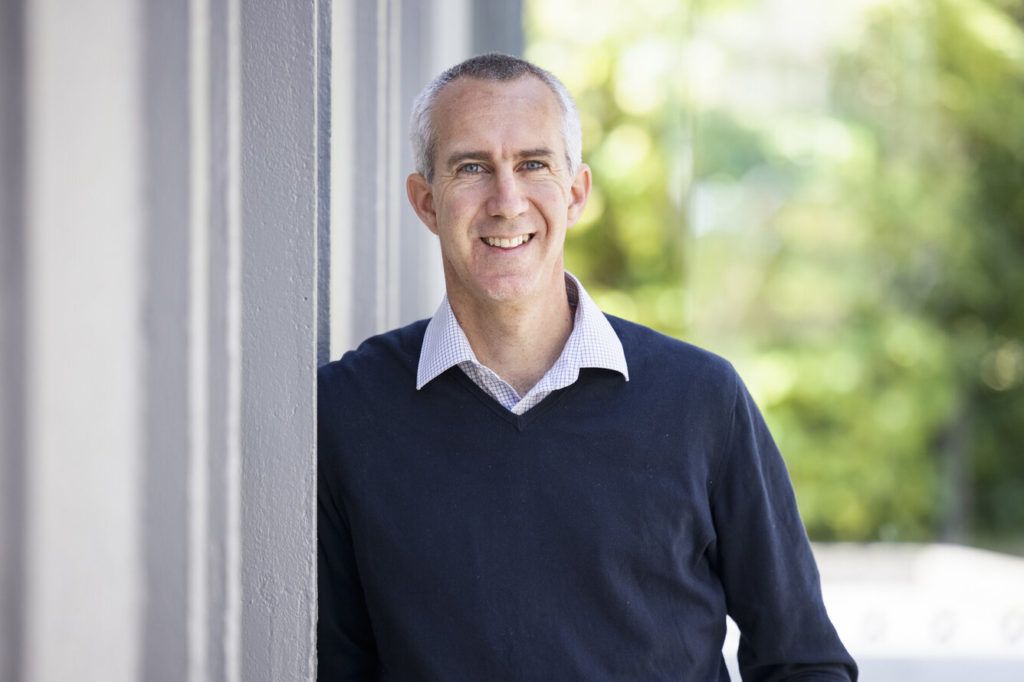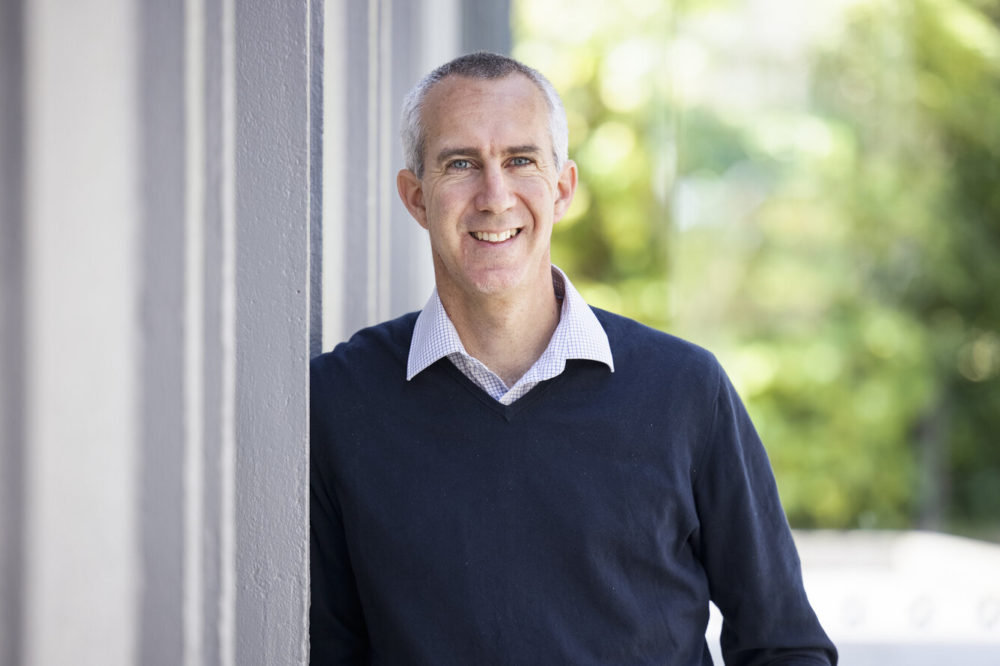
When Israeli venture investor Gil Meron told colleagues that he was considering a career move to New Zealand, people thought he was mad.
“They said: ‘It’s a joke, right?’ Israel is one of the biggest hubs, there’s a ton of deal flow, and you want to move to New Zealand? It’s just sheep and cows!,” he recalls.
But for Meron, moving to a place with plenty of sheep and cows made perfect sense.
After leaving the armed forces — having gained his engineering chops — in the 1990s, he joined IBM, where he worked on a variety of exciting tech projects – including Microsoft’s Xbox 360 gaming console, for which ‘Big Blue’ helped co-develop processing units.
It soon became clear to him, however, that IT wasn’t his passion. He left IBM and engineering behind, studied business administration, and joined Boston Consulting Group.
“[I had] the plan of finding another industry which could match the excitement and caliber of people in the IT industry, with better environmental and social goals,” he says.
At the consulting firm, Meron was assigned to carry out an analysis project with a client in the water sector.
“Together we looked 30 years into the future and I realised: in water, and more so in food, is where I wanted to be,” he says.
“It’s a huge industry, worth trillions of dollars, and if you compare the amount of investment going to fintech or transportation, it’s marginal. But the implications reach far further, and actually the growth opportunity — which is to feed the entire world — is huge.”
Meron began working with the World Bank, where he helped its private investment arm — International Finance Corporation (IFC) — develop an agritech strategy.
Sprout Agritech’s first-ever venture investment was 400 million years in the making – read more here
It was during his work with IFC that Meron got to meet much of the global agrifoodtech investment community – including the team at San Diego, California-based VC Finistere Ventures.
Shortly after, he joined the firm, building a pipeline of agrifood startups from Israel and launching its incubator operations in the country.
A few years later, when Finistere was helping to transform New Zealand agrifood accelerator Sprout Agritech into a similar setup, Meron was the go-to man.
“I said, ‘I want to run it!’ And the partners were first-class: [Israel-based venture crowdfunding platform] OurCrowd, who are so active and so dynamic; and then Fonterra – you don’t need to tell anyone in New Zealand who they are. They’re a dairy powerhouse and New Zealand’s largest company with over NZ$20 billion [$14 billion] in revenue. With agriculture making a significant contribution to New Zealand’s greenhouse gas emissions Fonterra sees a huge opportunity to decarbonize production and engage with disruptive technologies.”
Nevertheless, many of Meron’s associates in the US, Europe, and his native Israel urged him to think again.
“But when I looked more closely, I realised there was actually a lot of venture activity going on [there]. The Kiwis don’t shout about it — they’re doers more than talkers — but companies like Rocket Lab and Xero came out of New Zealand,” he says.
“So I thought, ‘This is an opportunity like no other,’ with almost zero downside risk in a place that, from a VC maturity standpoint, is a bit like where Israel was in the 1990s – with international players just beginning to take a look.”
“If we can do even half of [what Israel has achieved] this would be the most amazing run.”
The future of meat and milk
Meron took up the post of CEO at Sprout in February this year, just months after the accelerator and new investor partners OurCrowd, Finistere had jointly won a tender to run a new agrifoodtech incubation program for the New Zealand government.
While he admits that it’s still early days and he still has plenty to learn about the Kiwi agrifood ecosystem, Meron has been thoroughly impressed by what he has seen so far.
“We certainly see more and more interest [in agrifoodtech] from industry and investors. My network here is still limited, but just in the last few months I’ve been here, I’ve seen six new funds enter the market or being raised,” he says.

Sprout — which runs two of its flagship accelerator programs each year — is in the midst of accepting applications for its next batch of startups.
Submissions are welcome from teams based anywhere in the world (so long as they can make the journey down under given ongoing Covid-19 travel restrictions). They can also be working in pretty much any area of ag and food – though some may benefit more than others from what New Zealand’s well-established agricultural industry, substantial agrifood exports, and unique biodiversity has to offer.
“New Zealand puts a huge spotlight on ag, and specifically on livestock. These animals are not just greenhouse gas emitters, they also — if not farmed in a sustainable way — can harm the waterways and the soil,” Meron says.
“There is still a lot to do there. Dairy, beef, and lamb exports are a huge share of the economy, and this means that, to build the Kiwi farm of the future, we need to do it around animal livestock.”
That doesn’t mean that ‘animal-free’ proteins are irrelevant for New Zealand, Meron adds.
The very fact that the country is a longstanding center of livestock agriculture puts it on the front foot when it comes to alt-protein production – particularly in terms of dairy analogs.
“While they want fresh and high-quality food, consumers also want food that is sustainable and low-emission. New Zealand can be a hotbed in the development of these products,” he says.
“Another place where we would like to see either locally grown or foreign companies coming into New Zealand is alternative proteins – especially alt-dairy, or dairy-like proteins. With a huge amount of knowledge and expertise in dairy science there is a significant opportunity to leverage this to produce better alt-dairy products and ingredients.”
“Whether it’s simple rice or almond or soy milk, to fermented or plant-based or cell-cultured products, the growth opportunity is there – and New Zealand has the expertise, people who are researching proteins and researching dairy and have a lot of in-depth knowledge.”
LIC lost out on Afimilk courtesy of Covid-19. But it’s still hunting for tech deals, says CEO – read more here
New Zealand is also exploring cell-based meat production with world-leading researchers like the University of Auckland’s Laura Domigan helping to build momentum.
“I don’t think it’s an ‘either-or’ thing. I think people will continue consuming real dairy and real meat, but a lot of the growth will come from alt-meat and alt-dairy – especially if they reach the same price,” Meron says.
Another area of particular interest for Sprout going forward is regenerative ag – farming methods and practices that can encourage better soil health and water use, and more sustainable farm operations overall.
“The [indigenous] Māori culture has been using regenerative ag practices for centuries, in the way they were thinking about, and treating, the land,” Meron says.
“It’s not easy to turn those kinds of practices and knowhow into technology-based companies, but we would like to find a way to use some of that knowledge that has been practiced by the iwi [tribal group] farms and match it with government-funded research and tech, and our company-building capabilities and investment. We believe New Zealand would really be able to benefit from this.”
Next intake
For its upcoming accelerator program, Sprout is looking for “highly-driven entrepreneurs working on the broad challenges in ag and food,” Meron says.
“The program is valuable, regardless of the maturity of your product.”
Applications close on June 4.
Looking farther ahead, Sprout intends to start running more sector-specific cohorts, Meron reveals.
These thematic programs may be horizontal — focusing on viticulture, dairy, or aquaculture, for example — allowing Sprout to leverage its industry network and provide more value for partners and entrepreneurs alike.
Other programs may take a horizontal approach, zeroing in on themes like sustainability, or research from New Zealand’s state-owned Crown Research Institutes (CRIs), for instance.
“Paradoxically, when you narrow the search, you can actually get a lot more dealflow – because you discover people who didn’t think they needed the assistance, or didn’t know they could be entrepreneurs, and we can really help them with the heavy lifting of building a company,” Meron says.
One example where Sprout has already seen this is with Scentian Bio, its first venture investment. Sprout investment manager Warren Bebb is acting as an interim CEO for Scentian, which is a spin-out from CRI Plant & Food Research founded by scientist (and now chief technology officer) Andrew Králíček.
“[This way] we can actually increase our pipeline and also provide more interest to the corporate partners we work with, and really take a more important role in building the ecosystem here,” Meron says.
“At Sprout we really want to be business builders and ecosystem builders, rather than just providers of money. The dollar is a commodity – yours is as good as mine. We want to find the people who want to build a business, and who want our specialist skills, to attract them and help them do that.”





